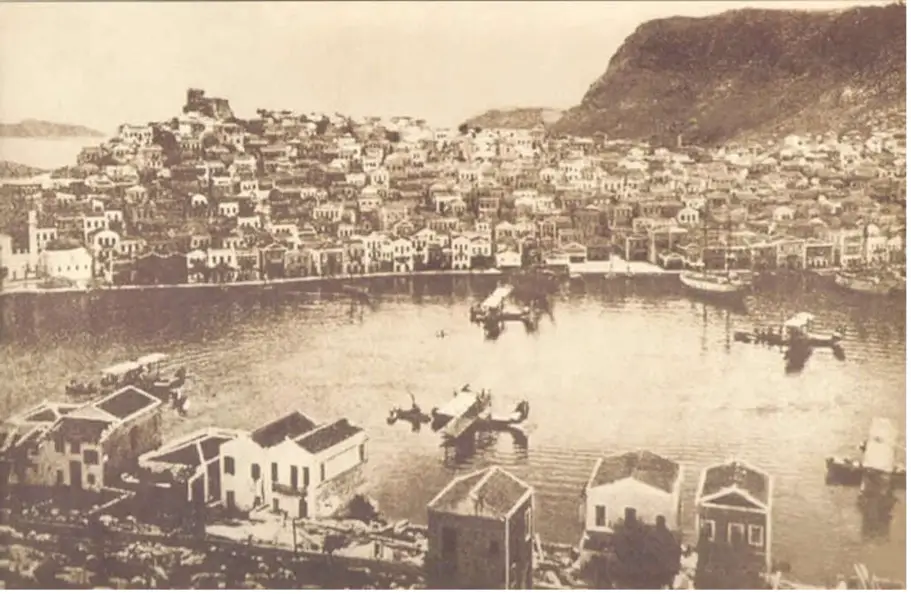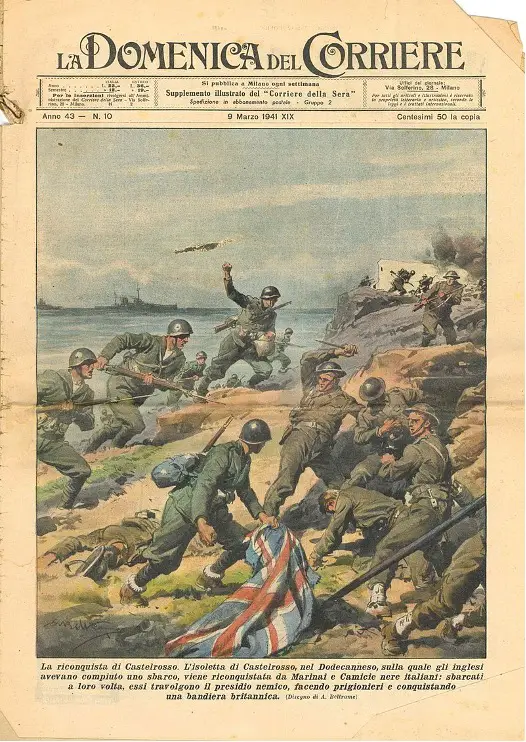Luigi Biancheri was born in 1891 in Genoa, he entered the Royal Naval Academy of Livorno in 1907 and was appointed Ensign in 1911. After taking part in the Italo-Turkish War, he fought in the Great War. In July 1917 he moved to the Navy infantry regiment (Reggimento Marina), tasked with the mission of defending Venice. During the war, he earned two silver and one bronze medal. In 1919, he joined the Italian expeditionary force sent to Turkey, which face a troubled postwar situation.
The numerous embarkations, first on thin ships and convoys, then the command of coastal batteries in the Upper Adriatic, the direct knowledge of the Aegean sector, the teaching of maritime military art (1933-1935) at the Turin war school, the service at the submarine preparation office (1937) in Rome. These experiences, together with further periods onboard destroyers and light cruisers, provided much experience to Luigi Biancheri, who specialized in assignments in peripheral theatres where he enjoyed a greater degree of autonomy.
Finally, in 1939, he was appointed rear admiral and in December of the same year, he assumed command of the naval forces in the Aegean, where Italy retained control of the islands known as the Dodecannese. When Italy entered WW2, the limited Italian naval and aircraft assets deployed in the Dodecannease, prevented substantial obstacles to the enemy military and merchant traffic. However, from the airbases (Rhodes and Lero) bombings were conducted against Nicosia and Haifa, then against Greek basis, and occasionally against British warships (like in the clash of Cape Spada). He participated in the planning regarding the successful raid of the X° M.A.S. flotilla against Souda bay in March 1941.

The port of Castellorizo in the interwar period
In that same period, he commanded the air and naval forces that recaptured the island of Castellorizo, initially taken by the British during Operation Abstention.

The recapture of Castellorizo in an Italian newspaper
In May 1941, he collaborated with the Germans during the operations in Crete, directing the Italian naval forces that participated in the battle, mainly providing escort for the convoys transporting German and Italian troops. He left the Agean in 1942 and in November of that same year he assumed command of the Bizerte Navy command in Tunisia. The Axis had occupied French-held Tunisia following the American landings in North Africa. Here, Biancheri and the Regia Marina faced the difficult task of defending the convoys carrying supplies for the Italian-German forces in Tunisia against the overwhelming Allied naval and air dominance.
In February 1943 he was nominated inspector for the torpedo boats, and from August assumed command of the 8th cruiser division (consisting of the cruisers “Abruzzi”, “Garibaldi” and “Regolo”) based in La Spezia. When Italy signed the armistice with the allies in September 1943, the remaining surface forces of the Regia Marina set sail amid confusion and scepticism. The order of surrendering the fleet to the allies was not well received by many. Allegedly, Biancheri was among those officers in favour of scuttling the fleet instead of surrendering. The events of the 9th of September and the sinking of battleship Roma changed everything. The Italian fleet eventually surrendered to the allies in Malta and soon after, several units aided the allies in convoy escort or patrol duties. Biancheri participated in such activities and continued to serve in the Navy after the end of the war. He died in Rome on December 12, 1950.
Biancheri saving the Tunisian Jews?
According to some sources (the Historian Enrico Cernuschi reporting the testimony of Vero Roberti), when Biancheri was in Tunisia, he clashed with the Germans regarding the deportation of Tunisian Jews. Allegedly, Biancheri refused several times to provide ships for allowing such deportation to take place. A furious verbal clash with SS officers could be the reason for his removal from the Bizerte command in February 1943.
Sources
Alberini, P., & Prosperini, F. (2015). Uomini della Marin 1861-1946, Dizionario Bibliografico.
Pirozzi, N. (2020). Gino Biancheri. Rivista Marittima, 93-98.